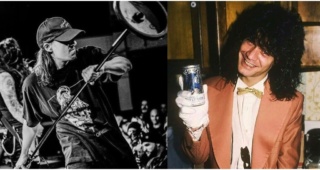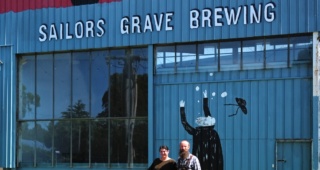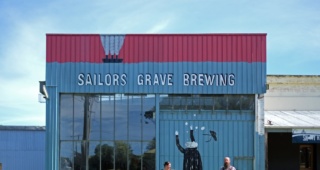When conversation shifts to the state of Singapore’s increasingly crowded beer scene, Sean McLin furrows his brow and gesticulates animatedly, at least by the standards of the otherwise calm, even-keeled head brewer at Brewerkz, the island’s oldest brewpub. His diction becoming more deliberate, McLin acknowledges that competition has reached an all-time high, but feels that it’s a good thing for Brewerkz, as well as for the Lion City’s other craft breweries.
“A rising tide lifts all boats,” he stresses.
Statistically speaking, craft beer’s share of Singapore’s beer market is miniscule. Hard and fast numbers are scarce, but recent estimates of craft’s reach range from 11%, per a 2015 Flanders Trade & Investment survey, to as low as 2%, as Winston Kwang, owner of Singaporean import and distribution company Beerstyle, suggested in a 2016 interview.
Either way, such statistics do not reflect the undeniably different—and sexier—look Singapore’s beer landscape has adopted in recent years.
Unlike six or seven years ago, today there are hundreds of imports available from craft breweries around the world. Those beers are finding a bigger and bigger audience in dedicated beer bars like American Taproom, The Good Beer Company, and Freehouse, but they’re also popping up on supermarket shelves, in department store food halls, at airport duty-free shops, and even in hawker centers. Attendance at annual beer events like the iBrew Challenge (a craft celebration headlined by a homebrewing competition) and Beerfest Asia (self-explanatory) continues to increase every year.
Overseas craft breweries like Moa Brewing Company and, most recently, Little Creatures Brewing have planted their flag here with their own showcase venues, too. And after a period of stagnation, the domestic brewing scene has taken off in the past five years, as well, with newcomers like Brewlander, Rye & Pint Brewery, and Crossroads Brewing Company quickly catching up with Singapore’s more-established breweries.
It’s fair to wonder how this spike in accessibility, variety, and exposure has impacted and will continue to impact this latter group. For a long time, members of what we might call the “old guard” of Singaporean craft brewing—most notably Brewerkz, RedDot BrewHouse, and LeVeL33—have banked on a happy combination of factors to thrive: fresher and purportedly tastier beer than mass-produced alternatives; lower prices and more consistent availability than fancy imports; and the ability to brand themselves as at once “local” and “exclusive.”
However, these veteran breweries do not sound overly concerned with any real or potential threats to their collective trump card. On the contrary, they seem to embrace the changing times.
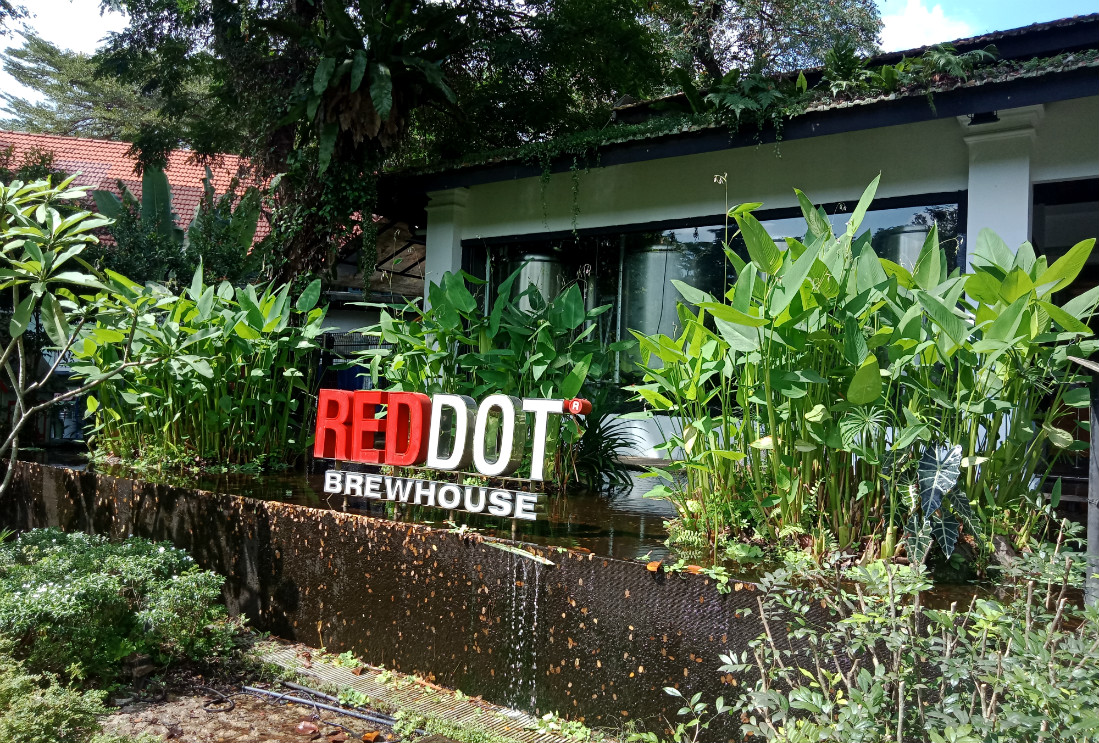
Like McLin, RedDot brewmaster Crystalla Huang believes that while competition has become more intense, the increased exposure to craft beer across Singapore is beneficial for her and for her contemporaries. Huang, who assumed the lead brewing mantle from her father and RedDot founder, Ernest Ng, chuckles at how barren things were not too long ago. “Imagine trying to put up a craft beer festival in Singapore 10 years back. It’s… boh lang [no people], you know?” she says. “It would have been more like a commercial beer event.”
Huang and McLin both cite a largely friendly rapport within the beer community as one reason they welcome the ongoing influx of newcomers. “In craft beer, people are mostly friendly and willing to share tips,” Huang says. “If you ask someone a question, they’ll try their best to answer. It’s a very open community.”
McLin offers similar sentiments. “There are no douchebags in the craft beer industry,” he says. “Well… almost no douchebags.”
Huang and McLin have divergent views, however, concerning craft beer’s direction in Singapore and, as such, employ differing plans of attack.
Huang feels that craft beer has reached, or is close to reaching, a saturation point here. Moving forward, her plans for RedDot’s future have arguably less to do with strictly brewing-related concerns than they do with the company’s overall brand and business. In particular, Huang places great emphasis on education at all levels of the local craft industry, starting with the brewery’s staff.
“We’re training everyone here, including the part-timers, to differentiate between various types of beer, both craft and commercial,” Huang says. “For our full-time staff, they have to be able to identify each of our own beers just by smelling it.”
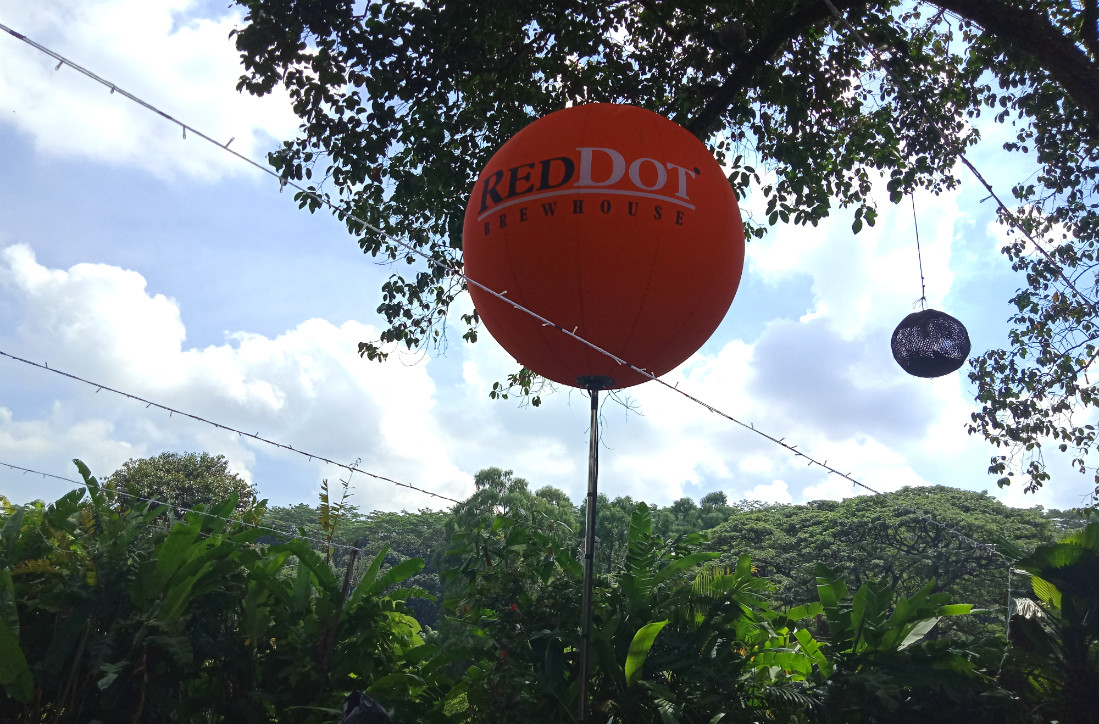
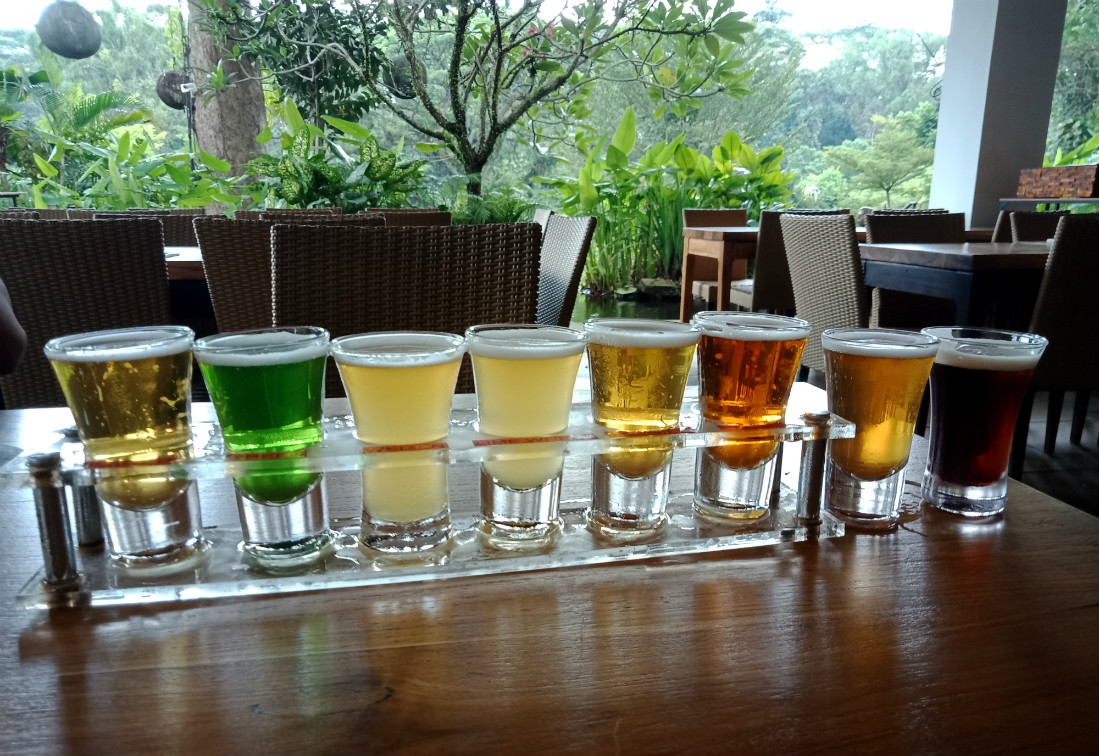
Outside of the brewery, Huang periodically conducts seminars and classes on such topics as fermentation science and beer appreciation. Education, in this sense, is not always restricted to beer, either. RedDot makes a point to support events like the Samsung D/code F&B Hackathon, where participants learn to harness technological advances to improve processes for food and beverage businesses. Huang says that RedDot participates in such events to help the public gain a greater understanding of both beer and commerce, and for retailers and their staff to become better equipped to handle queries from craft-curious customers.
Of course, it’s still beer fueling the RedDot engine, and on that front things have looked noticeably different than in years past. In 2015, the brewery launched a 30-hectoliter brewhouse in Melbourne, Australia, that has a bottling line that can handle 12,000 an hour. In turn, RedDot’s footprint has expanded regionally as it ramps up export efforts, as well as domestically as it distributes to more Singapore hotels and restaurants. Huang added a number of more ambitious seasonals and one-offs to the brewery’s tried-and-true core range, too, including a barleywine, a passionfruit blonde ale, and a watermelon wheat ale.
For his part, McLin thinks Singapore’s beer scene still has plenty of room to grow.
“Coming to Singapore feels like I’ve been brought back to the 90s,” he says. “It’s the same as when I got to Barcelona in 2012, when craft beer was in its infancy there.”
McLin took the long way to Singapore. Starting out as a homebrewer in California, McLin worked his way up through brewpubs in the US state of Arizona in the mid-90s and into the 00s before founding Edge Brewing in Barcelona, Spain, in 2015. He moved to Singapore in September 2017—his first-ever visit to Asia—and became Brewerkz’s head brewer the following January.
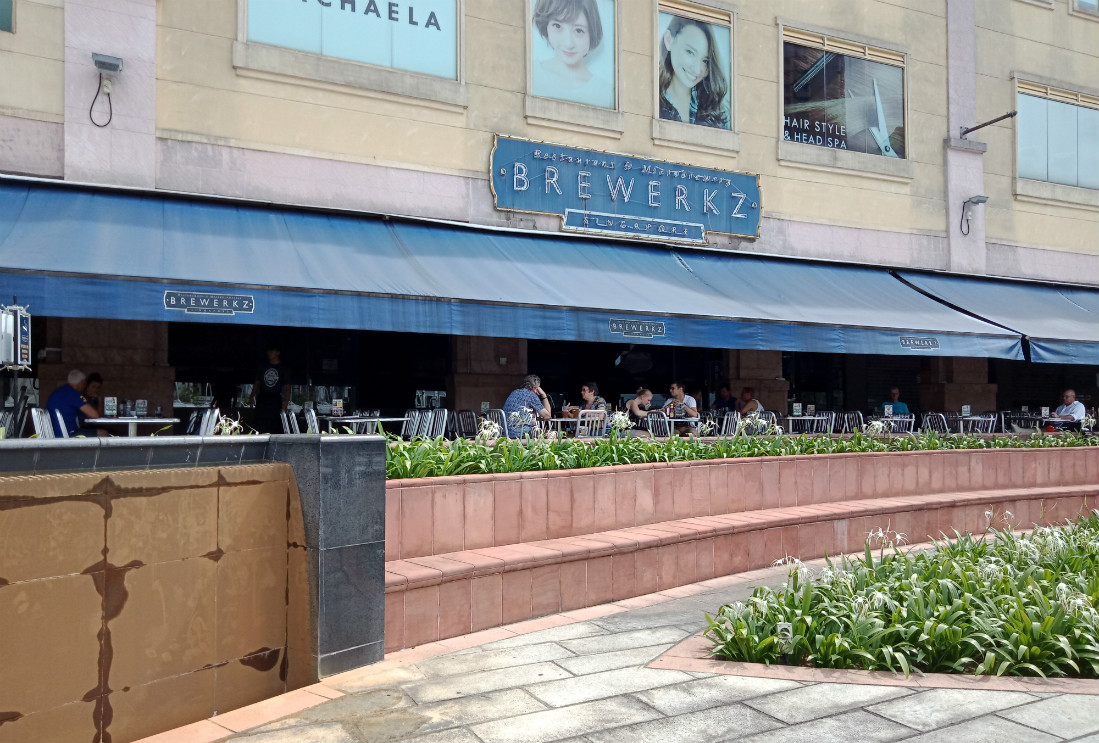
In his first year on the job, McLin sees some parallels between Singapore and Europe, though he thinks Singapore has the advantage of being able to draw from a greater pool of collective knowledge and experience to expedite its growth. “It took this new style of hop-driven beers—New England IPAs and all that—to drive this ‘second wave’ of craft beer in Europe,” he says. “We have an opportunity here to bring in all this accumulated knowledge and push on from there.”
Unsurprisingly, McLin’s ideas for Brewerkz’s future involve far more novelty, variety, and experimentation than the brewery’s previous status quo. That’s a welcome development for a place that’s been around since 1997 and failed to move the needle much for years. “We’re playing around with light beers, dark beers, and everything in between,” he says. “We’re gonna be really pushing the envelope here, and we expect to increase our brewing capacity by 400%.”
Related: At The Guild Singapore, A Significant Step in Young Master’s Regional Footprint
That’s a lofty goal. To help make it happen, McLin plans to draw on connections he’s made over the years with distributors, maltsters, and hop farmers. “Brewerkz has allowed me to go and get experimental hop varieties. I think I’ll end up having something like 30 to 40 varieties to work with,” he says with palpable excitement. “And when I say ‘experimental’, I mean they haven’t even been given names yet, just numbers.”
Along with more hop-forward brews, McLin will introduce new lagers, sours and, after some pressing by this writer, stouts to Brewerkz’s beer menu.
McLin clearly believes that locals have yet to experience half of what craft beer can be. He’s confident, too, that Brewerkz can help lead the way of what you might call Singapore’s ongoing “beer wakefulness,” even as importers and distributors offer increasing numbers of exotic overseas labels.
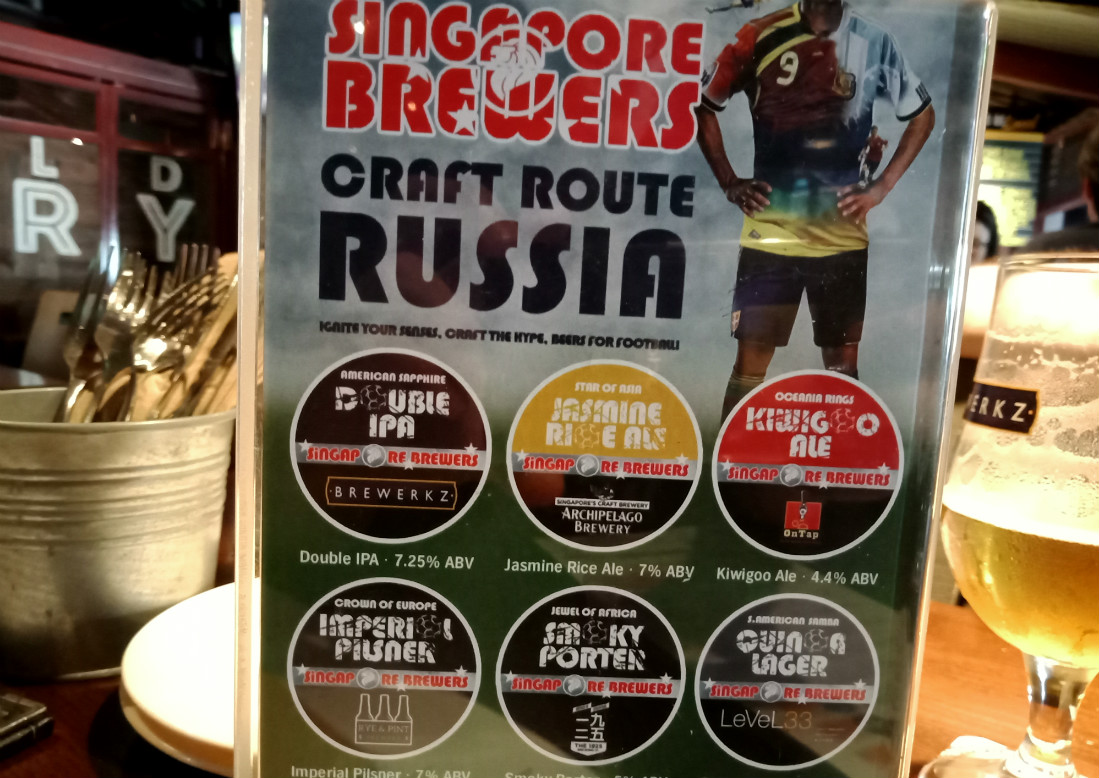
That said, if local breweries are to thrive, McLin feels it will be as a unit, rather than as fragmented or isolated entities. “We as brewers,” he says, “we need each other.” To this end, Brewerkz recently participated in “Craft Route Russia,” a collective effort by Brewerkz and five other Singaporean craft breweries to brew six different beers that use ingredients or otherwise draw inspiration from the six continents represented in the 2018 FIFA World Cup. For Brewerkz’s part, McLin brewed American Sapphire, a double IPA inspired by North America.
Brewerkz isn’t Singapore’s only legacy craft brewery finally embracing beer’s longstanding spirit of collaboration. LeVeL33 recently debuted Champagne Beer, a collaboration with House Barons de Rothschild brewed with yeast from the renowned vintner’s rare Blanc de Blancs Vintage 2008. Another collaboration, this one with Melbourne’s Two Birds Brewing on a golden ale brewed with Tasmanian hops, will be tapped in August.

As previously noted in our LeVeL33 feature story, however, the brewpub occupies a different and rather curious space in Singapore’s beer scene. Brewmaster Gabriel Garcia readily acknowledges that a good number of his customers come less for the beer and more for the views from the self-styled “world’s highest urban craft brewery.” The upshot, he says, is that in a sense he’s free to take things at his own pace, largely insulated as LeVeL33 is from the peculiarities and machinations of the local craft beer world.
Related: In Singapore, The Curious Case of LeVeL33
As Singapore’s beer scene evolves, the island’s old-school breweries have, to their credit, realized that sticking to the same old, same old just won’t do. Time will tell if the varied responses resonate. One thing on which all of these brewers agree, however, is that even as the craft climate continues to change, the geographical climate—it’s always hot and humid—never will. There’s a place, and maybe a necessity, for experimental hops, wide-reaching education, and collaborations, but sessionable, easy-drinking beer may always be the easiest path to the hearts and minds of Singapore’s beer drinkers.
“In this weather,” McLin admits, “drinkability is something to which I will always go.”
###
All photos taken by the author. Please do not reuse, reprint, or otherwise shamelessly steal them.
This story was edited to the sound of The Soft Moon.



